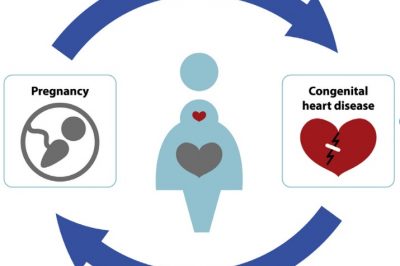Preeclampsia is a potentially life-threatening condition that affects pregnant women and poses a severe risk to the mother and baby. Its causes, hazards, and influence on maternal and fetal health make it a serious issue requiring comprehensive treatment and awareness. According to a recent systemic examination of mortality, Pakistan has the third-highest rate of maternal, fetal, and child deaths in the world. This opinion piece will explore the reasons for preeclampsia, the dangers it poses to both the woman and her unborn child, and the necessary measures to safeguard both.
The Reasons Behind Preeclampsia
The specific cause of preeclampsia is unknown; however, various factors are thought to have a role in its development. Inadequate blood flow to the uterus is a crucial component caused by damaged blood vessels, an aberrant immunological response, or genetics. Obesity, high blood pressure, diabetes, and kidney disease are potential causes. The key to prevention and early detection is understanding these factors. Preeclampsia typically develops in pregnant women whose blood pressure had previously been within the normal range after 20 weeks of pregnancy.
Maternal Health Risks
Preeclampsia endangers the health of expectant mothers. High blood pressure is a frequent symptom, along with headaches, blurred vision, and swelling of the hands and face. Preeclampsia can have serious side effects, including eclampsia (seizures), organ damage (especially to the liver and kidneys), and even maternal death if not addressed. To reduce these risks, early detection through routine prenatal care is crucial.
The Fetal Health Risks
Preeclampsia not only endangers the health of mothers, but it also has severe consequences for fetal health. Because of the decreased blood flow to the placenta, the baby’s growth and development may be hampered, increasing the risk of premature birth and low birth weight. Preterm birth may be necessary to safeguard the mother, but this comes with hazards for the baby. As a result, managing preeclampsia is critical to ensure that these children have the most incredible possible start in life.
The Value of Maternal Care
Prenatal care is essential for the prevention and management of preeclampsia. Regular examinations enable medical professionals to monitor blood pressure, spot protein in the urine (a crucial indicator of preeclampsia), and quickly handle any new issues. Furthermore, healthcare experts can advise patients on lifestyle modifications and medication to assist them in controlling risk factors such as weight gain, hypertension, and diabetes.
Also Read: Pakistan’s Caretaker Prime Minister visits Xinjiang University
Preeclampsia Prevention
Preeclampsia is potentially destructive, although it can be avoided if women take preventative measures. Reducing the risk by leading a healthy lifestyle before and during pregnancy is possible. This includes eating a balanced diet, exercising regularly, and abstaining from alcohol and smoking. Careful monitoring and consultation with healthcare specialists are critical for women with pre-existing diseases such as hypertension or diabetes.
Cardiovascular Disease and Preeclampsia
Preeclampsia is not merely a pregnancy-related problem; it is also intertwined with the larger picture of cardiovascular health. Women with preeclampsia during pregnancy are more likely to develop cardiovascular disease later in life. This association highlights the significance of managing preeclampsia for women’s general health, not just maternal and fetal health.
Preeclampsia is an unbearable condition that puts the mother and her unborn child at risk in many ways. Protecting mother and fetal health requires knowing its causes, recognizing its symptoms, and prompt prenatal care. We can make preeclampsia less common and births safer for all women if we put a premium on information sharing, knowledge, and research. Preeclampsia is a severe threat to maternal and infant health and managing it will help lessen the overall prevalence of cardiovascular disease worldwide.
International Relations Scholar interested in National Security strategies, with a good focus on Geo-Politics, Foreign Policy, and Public & Cultural Diplomacy.







